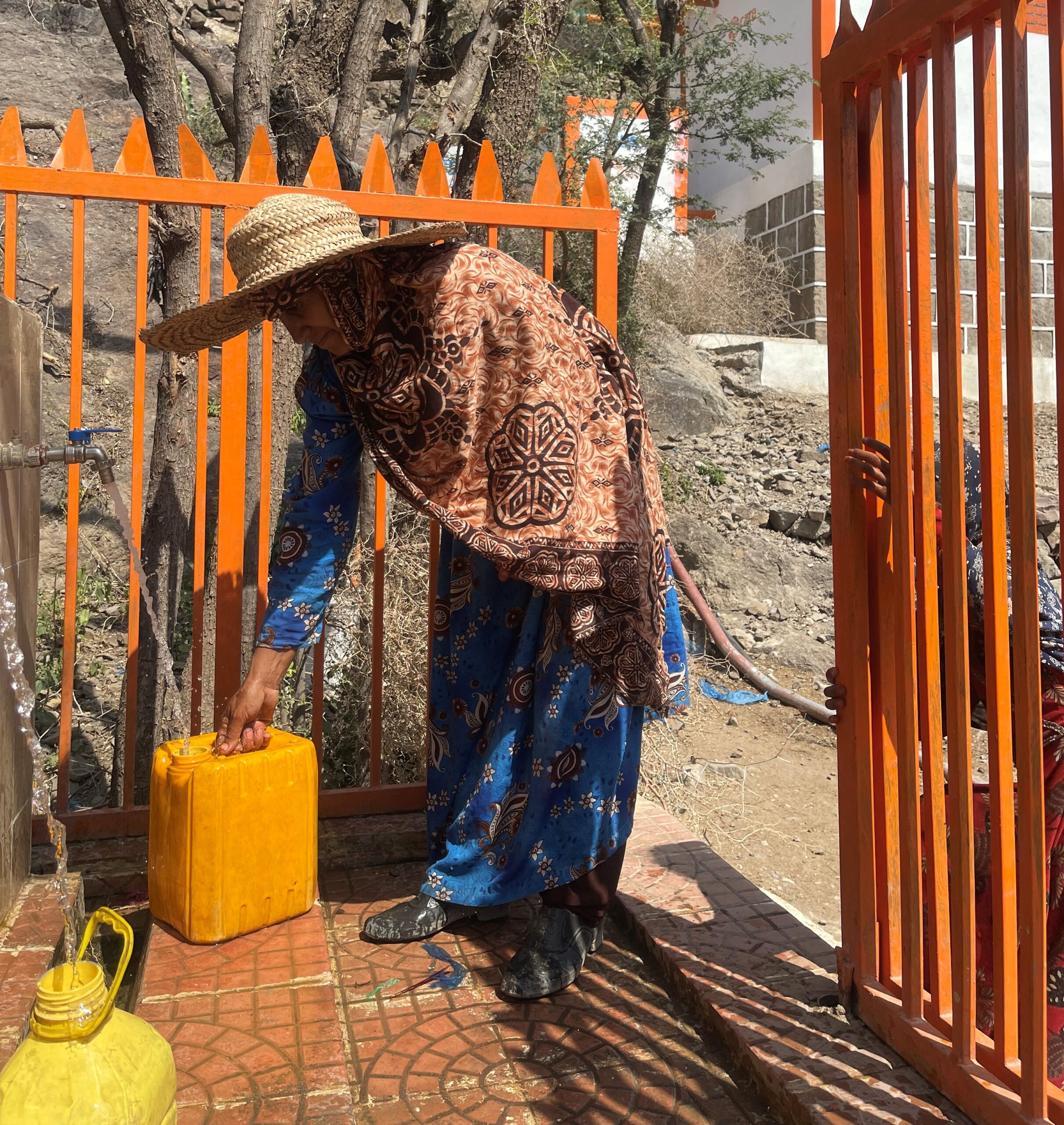An estimated 49 per cent of Yemenis have no access to safe water and 42 per cent lack adequate sanitation. In 2021, 101 districts are projected to have extreme and catastrophic conditions, where 4.3 million people are in acute need and less than a quarter of households have access to safe water and sanitation.
Al-Ashroh village is one of the poorest villages of Taiz governorate. Twenty years ago, the village witnessed the spread of epidemics such as Cholera and Dengue Fever, due to water pollution, which left a large number of deaths. Residents used to use water from unprotected springs, which were the main drivers of many diseases in the district.
After the spread of epidemics, the residents of the village dug a water well and managed to install a water pump to raise the water from the wells. However, a sudden rise in the price of diesel due to the ongoing war left villagers unable to afford buying enough diesel to run the water pumps and to obtain clean water. Therefore, residents resorted to fetching water again. “Men in Al-Ashroh village used to work on daily wages which means that they can’t provide all needs for their families. After the conflict they became unable to buy diesel,” says Hassan 40–year–old resident of Al–Ashroh village.
Lack of access to water, sanitation, and hygiene are some of the most pressing concerns – 58% of people do not have access to safe water. The burden of fetching water often falls on women and girls who must walk long distances every day to reach water sources, leaving them vulnerable to many risks along the way. Fetching water can also be very dangerous for women and girls. They can face conflict at water points and the risk of physical or sexual assault. Moreover, female students used to miss school to fetch water at least twice a day.
Saad, a 90–year–old father of eight kids, lives in Al–karb village one of the areas which suffers from lack access to safe water. Residents used to fetch water from open wells. “The water was not clean.it was full with animals’ dung, dirt and soil. We used it for drinking, cooking, cleaning and other home chores. This meant people suffered from many preventable diseases,” says Saad as he was describing the normal daily journey of fetching war. Tying ropes around waists and throwing them down the well was the only means to pull water out of the well. “I used to be the savior in our village, especially for women who used to fall in the well,” Saad says.
Taiz is considered one of the areas threatened by drought. It is common that many villages share one well which makes women waste most of their time on fetching water. Women have to go out before sunrise to fill up enough water for their families. Fatema is a 40–year–old mother of five sons. She used to spend many hours to fetch water. “In Ramadan (the month of fasting for Muslims), I have to do some house chores beside fetching water like cooking and making salad. Most of our time is wasted on bringing water,” says Fatema.

